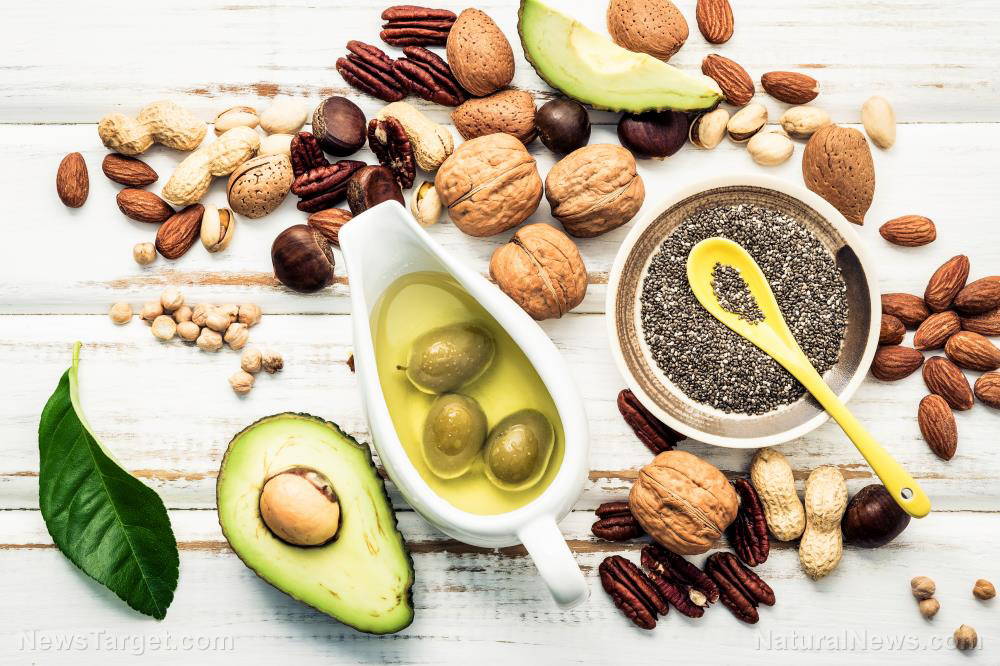Groundbreaking study reveals that heart disease is an early indicator of vitamin C deficiency
11/16/2018 / By Isabelle Z.

Heart disease is usually linked to issues with cholesterol, but researchers are increasingly finding that vitamin C plays an outsized role in heart health. This antioxidant nutrient, which the body uses to make connective tissue, has already gotten some buzz for its utility in cancer treatment, but its effects on the heart may be even greater.
Researchers at the Dr. Rath Research Institute of California found that a vitamin C deficiency can cause coronary heart disease. In their study, they used transgenic mice that mimic the human metabolism in two key ways: They don’t produce vitamin C internally, and they generate lipoprotein to make up for this. After feeding the mice a diet that was lacking in vitamin C, their bodies acted as expected and created their own lipoprotein to fix the vascular walls. This caused them to develop heart issues and atherosclerosis.
Crucially, they discovered that the degree and level of heart disease the mice developed was directly linked to their vitamin C intake and blood levels. Those mice who had consumed the highest amounts of vitamin C naturally produced the least lipoprotein to repair their arteries, and by extension, had the strongest hearts and fewest atherosclerotic lesions.
Therefore, the researchers believe that proper vitamin C intake could be the secret to preventing heart disease and other cardiovascular problems. That doesn’t mean that cholesterol isn’t important; maintaining healthy HDL and LDL cholesterol levels is still a powerful component of overall health, but it may not play as big of a role as once believed.
The power of the elements: Discover Colloidal Silver Mouthwash with quality, natural ingredients like Sangre de Drago sap, black walnut hulls, menthol crystals and more. Zero artificial sweeteners, colors or alcohol. Learn more at the Health Ranger Store and help support this news site.
Higher vitamin C intake linked to lower heart disease risk
This is supported by a study that was recently published in the Journal of the American College of Nutrition. That study looked at 108 men and divided them into three groups according to their intake of vitamin C.
They found that the men in the top tier of vitamin C intake had a 66 percent lower risk of heart disease compared to those who had the lowest intake. The researchers aren’t sure exactly how vitamin C brings about such significant benefits to heart health. They theorize that it could be related to its ability to prevent and ease the stiffening in artery walls that can block the flow of blood. In fact, they discovered that the vitamin is especially effective at doing this in people who smoke.
Further studies provide additional evidence of vitamin C’s heart benefits. For example, a study carried out by the University of Copenhagen that involved more than 100,000 people found that higher blood concentrations of vitamin C were associated with a lower risk of not only cardiovascular disease but also death. It is important to keep in mind, however, that they saw this benefit in those whose high vitamin C blood levels came from eating lots of vegetables and fruits.
Getting vitamin C from food is preferable
The researchers said that although vitamin C supplements can help raise your levels of this important nutrient, getting it from a healthy diet is far preferable. Doing so will also help you develop a long-term healthy lifestyle, which will bring many other health benefits over time.
With heart disease being the leading cause of death around the world, we are lucky to have such an affordable way to prevent it that has very few side effects. Some of the best food sources of vitamin C include citrus fruits, acerola cherries, kale, broccoli, kiwis, strawberries, sweet potatoes, and bell peppers. Best of all, eating these foods will not just enhance your heart health; your immunity will also get a nice boost!
Sources for this article include:
Tagged Under: cholesterol, heart disease, heart health, natural remedies, nutrients, prevent heart disease, prevention, supplements, vitamin C, vitamin C deficiency



















